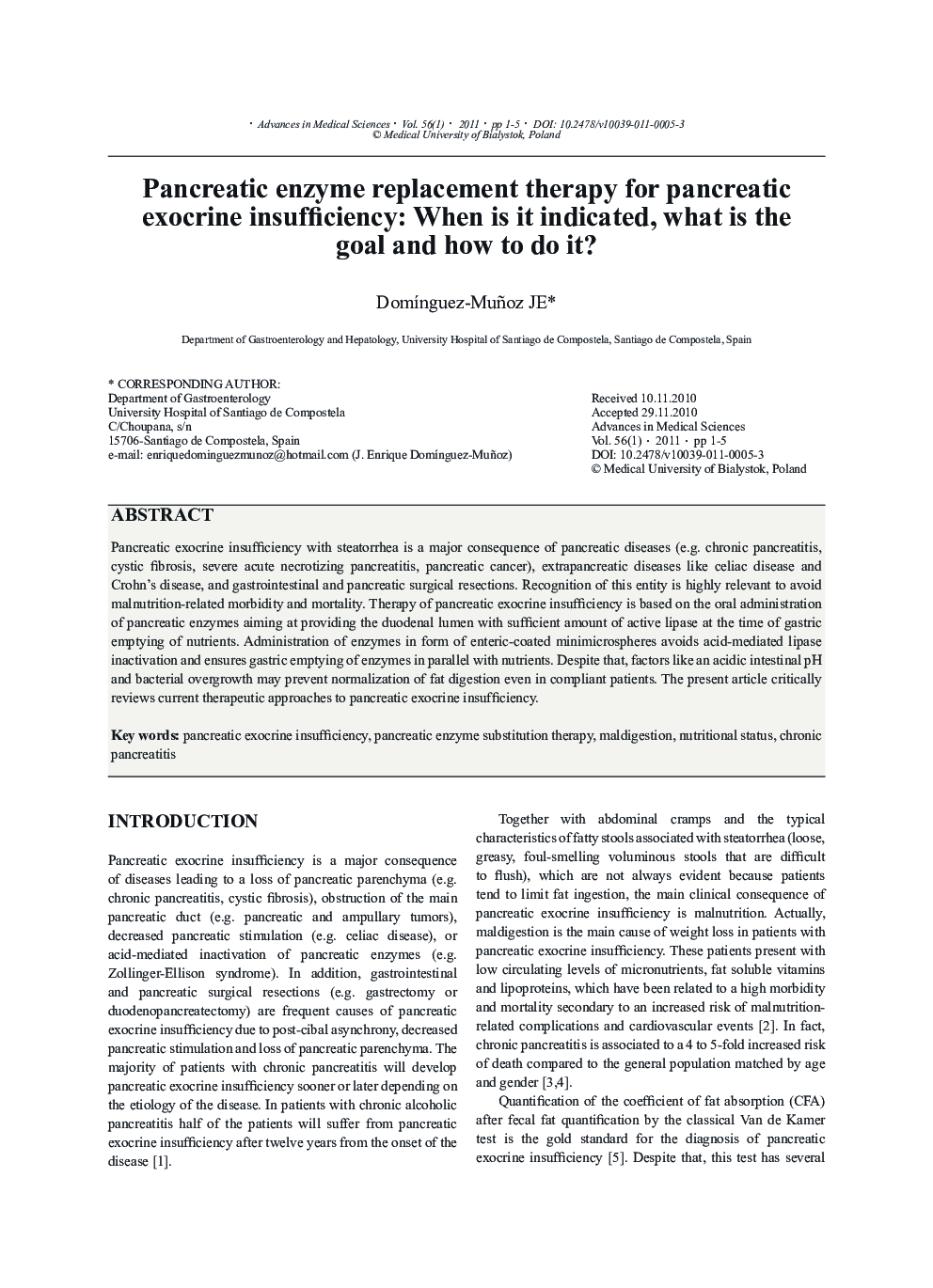| Article ID | Journal | Published Year | Pages | File Type |
|---|---|---|---|---|
| 2032053 | Advances in Medical Sciences | 2011 | 5 Pages |
ABSTRACTPancreatic exocrine insufficiency with steatorrhea is a major consequence of pancreatic diseases (e.g. chronic pancreatitis, cystic fibrosis, severe acute necrotizing pancreatitis, pancreatic cancer), extrapancreatic diseases like celiac disease and Crohn's disease, and gastrointestinal and pancreatic surgical resections. Recognition of this entity is highly relevant to avoid malnutrition-related morbidity and mortality. Therapy of pancreatic exocrine insufficiency is based on the oral administration of pancreatic enzymes aiming at providing the duodenal lumen with sufficient amount of active lipase at the time of gastric emptying of nutrients. Administration of enzymes in form of enteric-coated minimicrospheres avoids acid-mediated lipase inactivation and ensures gastric emptying of enzymes in parallel with nutrients. Despite that, factors like an acidic intestinal pH and bacterial overgrowth may prevent normalization of fat digestion even in compliant patients. The present article critically reviews current therapeutic approaches to pancreatic exocrine insufficiency.
